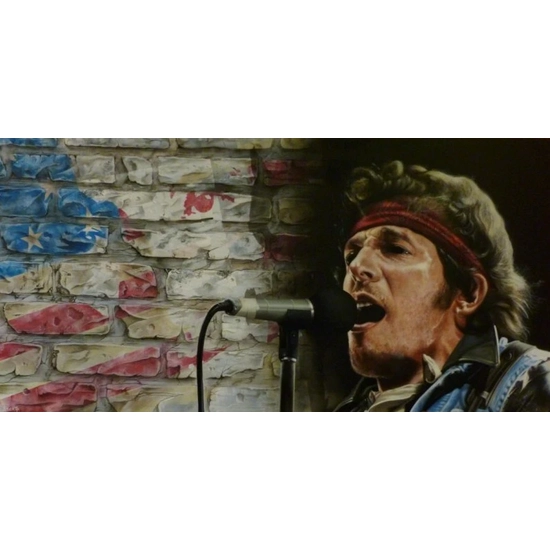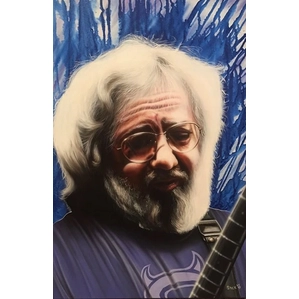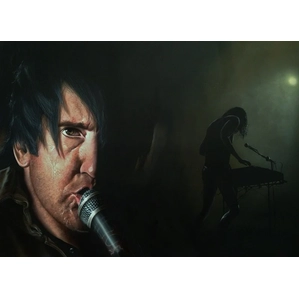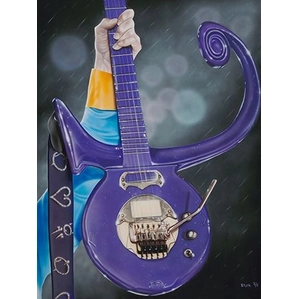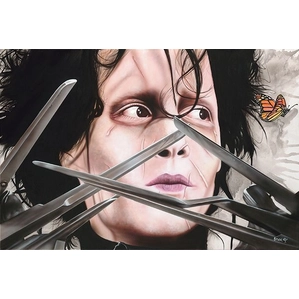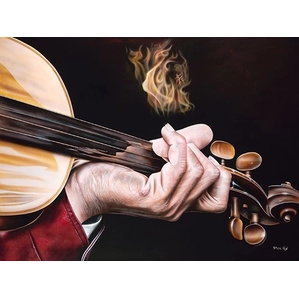Stickman The Tramp - Charlie Chaplin -Giclee On Canvas Artist Proof Hand Embellished
Status: In Stock Available | Condition: New | Edition:Artist Proof -Giclee On Canvas Artist Proof Hand Embellished | Edition Size: Limited Edition Of 50 | Dim:30 X 40 | Stickman| Item #: MGTRAMPAP
Price: $ 1,895.00 USD..
4/22/2025 $631.67 1st payment
5/22/2025 $631.67 2nd payment
6/21/2025 $631.67 3rd & final payment
payments are automatically deducted from your credit card.
Stickman The Tramp - Charlie Chaplin -Giclee On Canvas Artist Proof Hand Embellished is eligible for 3 equal layaway payments in store, with a credit card of $631.67 made every 30 days over a period of three months. US & Canada orders only.
Within The Continental USA Only
FREE Intl Shipping.Get More Details on FREE International Shipping.
Countries We Ship To:
Countries We Ship To:
Blending minimalist design with expressive storytelling, these stick figure compositions use simple yet dynamic lines to convey emotion, movement, and narrative depth. With a playful yet thought-provoking artistic style, each piece transforms basic forms into powerful visual storytelling, creating abstract yet deeply relatable scenes. Featuring energetic, modern conceptual artwork, these narrative-driven illustrations rely on strong composition and minimal forms to evoke humor, introspection, and emotion. Whether depicting whimsical, symbolic, or deeply expressive themes, this unique approach to contemporary figurative minimalism proves that simplicity can be both engaging and profoundly impactful in fine art.
As an option you may also pay for Stickman The Tramp - Charlie Chaplin -Giclee On Canvas Artist Proof Hand Embellished using Paypal or with your Amazon Account(*select items). Please note that all orders must be delivered to a physical address verified by Paypal or Amazon.
The Tramp - Charlie Chaplin - MGTRAMPAP
NOTES: The Tramp - Charlie Chaplin. This piece is a bit of a departure for me in both style and feel. Although I have always incorporated street art and abstract into the backgrounds of some of my pieces, I’ve never done it to this degree. While traveling in the South of France a few years back, I noticed a strong shift towards street art in some of the high end galleries in Saint Tropez. This was no doubt due to the influence of Banksy, Fairley, Mr. Brainwash, etc. Witnessing that art in that setting had a profound influence on me and I filed the inspiration in the back of my mind, vowing to revisit it when the right concept revealed itself. Fast forward to August of this year, I stumbled on a statement discussing the controversies surrounding Charlie Chaplin. I knew very little about Chaplin and was intrigued enough to do some research on what I believed to be one of the most recognizable characters in history. The more I read about this polarizing figure the more I realized he belonged in my Rebel series. The man I was reading about could not have been more of a juxtaposition to the character I was familiar with on screen. Although I don’t necessarily condone his actions or beliefs, it was the duality of the man that drew me in. After hearing of Chaplin’s multiple dalliances, his most memorable character, and subsequent title of his 1915 silent film, The Tramp could not have been a more fitting title..
The Tramp - Charlie Chaplin -Giclee On Canvas Artist Proof Hand Embellished by Stickman
image Copyright © 2025 by Stickman

Gift Card Purchase
E-Gift Cards from The Collection Shop are the perfect way to gift art enthusiasts. Click below for more details!
Stickman bio
Trevor “Stickman†Stickel specializes in icon based, pop-realism portraits that capture legendary moments, powerful ideas, and raw emotion. His work is described as gritty-yet fresh, complex-yet simple. Graduating from a Jekyll and Hyde influence early in his career, in which he divided his time between family portraits and airbrush design work on helmets and Harleys, Stickman had the epiphany to combine both styles while reading “According to the Rolling Stonesâ€. Two weeks later he finished his first canvas portrait of Mick Jagger, aptly titled “Please allow me to introduce myselfâ€, which forever changed the direction of his career in the art world. THE MISSION The idea or "mission" behind Stickman’s artwork is to create an artistic tribute to the music and to the musicians that have had a tremendous impact on him and many others. Historically, these tributes would have been limited to photos/posters that adorned the bedroom walls of teenagers and dorm rooms throughout adolescence. Stickman aims to create a style of art that brings these iconic figures back into our lives, and in a manner that adults can display proudly in their homes. THE CONCEPT The concept is to take a realistic portrait and juxtapose it with a background that expresses the feelings and emotions of the subject. This method also allows Stickman to explore other disciplines of art – many of his backgrounds will include abstract, expressionism, impressionism, realism, pop art, street art, surrealism and quite often a combination of these. This is where he gets to enjoy the artistic side of these pieces, while paying additional homage to some of his favorite visual artists. THE HIDDEN MESSAGES AND SYMBOLS In addition to the art itself, Stickman also adds (and quite often hides) his trademarked Stickman symbol (stick figure with devil horns) and the statement "Devil Inside" to the painting. • The Stickman symbol is derived from Stickman’s last name (Stickel) and a common phrase he hears from viewers, "I can't even draw a stick man". The horns represent rock and roll (his primary focus), which is generally regarded as the devil’s music, and references the duality of man (good vs. evil). • The statement "Devil Inside" also references this Jekyll and Hyde type of duality. Stickman often feels there is a difference between Stickman the artist and Trevor Stickel the person. When focused on a subject and working on a piece, he often gets so involved in the subject he finds himself emulating them in the way he dresses and acts, similar to a method actor. • The signature on the bottom right corner usually shows the Stickman symbol imitating the subject. THE TITLE The title of each piece is often overlooked but may very well be the most important piece of the puzzle. Stickman looks for a lyric that he believes personifies the subject or his feeling toward that subject and from there, begins to create an image and feeling that takes the viewer to that emotional state of mind. The titles are always a lyric from the subject's song but never the title of a song. If the viewer is a fan of the subject, they should almost hear the lyric or feel the emotion of the lyric when looking at the piece. Knowing the title completes the emotional connection to the painting and usually reveals a personal trait about the subject.

